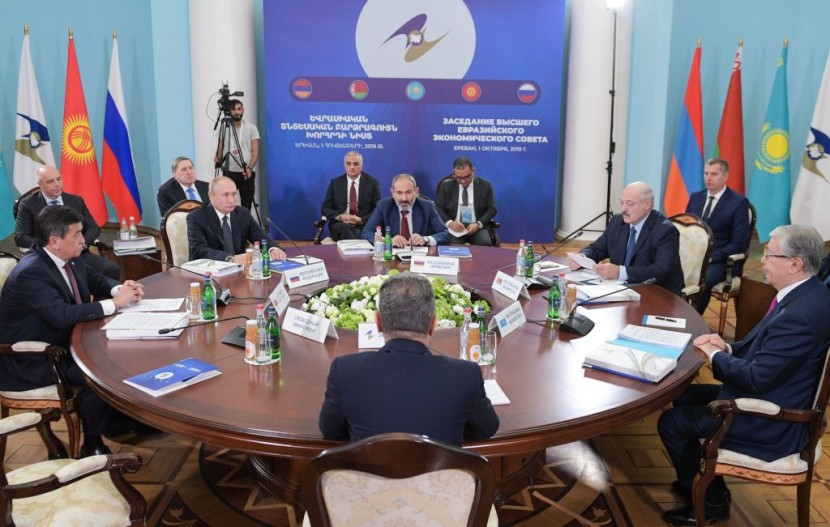
Russia and the Eurasian format aim to foster cooperation instead of Confrontation as NATO would, which was the sentiment expressed by a representative of the Kremlin last Tuesday.
Russia To Foster Cooperation, Not Belligerence
Yury Ushakov demonstrated that the Shanghai Cooperation Organization (SCO), Eurasian Economic Union (EEU), and Association of South East Asian Nations (ASEAN) formats are oriented at "shared peaceful coexistence, legitimate partnership, and just not possible warlike NATO while speaking at the Primakov Readings international forum in St. Petersburg, noted Salten Cz.
The nations of Eurasia are setting up a new world majority that upholds just and global principles, Ushakov stated. According to Anadolu, Moscow endorses and encourages the worldwide trend toward a multipolar world.
He cited Eurasia as influencing the fact that foreign affairs everywhere continuously develop toward multipolarity. Moscow endorses and encourages one such precedent, as demonstrated by the readjustment of all foreign policy that would occur before our eyes.
As shown by Ushakov, Moscow would then persist in this policy with its "allies and friends," with all those states that regard their sovereign power and favor collaboration without nonsensical conflict and are thus alien to Russophobia.
He observed that a new powerful, positive force to foster cooperation; this so-called "world majority"-that upholds just and ubiquitous principles and approaches is arising in the post-Soviet space.
Eurasian Format as a Russian Approach
The Russian approach developed in the Eurasian formats is aligned with the interests of such regions as Africa and Latin America, which also do not accept modern forms of neocolonialism or a rules-based order like NATO, Ushakov added.
Furthermore, Russia will never be part of Greater Europe, and now it is getting rid of "illusions" about it.
If previous plenty of people had spoken and presumed the idea of utilizing together with Europeans the principles of Charles de Gaulle concerning establishing a common living area from Lisbon to Vladivostok, it becomes apparent.
However, in the EU, they decided to abandon it, especially since the Americans, to put it mildly, did not contribute to its implementation. Indicate how, after 30 years since the fall of the Soviet Union, Moscow has not become an integral part of Greater Europe.
There is no "apartment" in a pan-European house. They just weren't permitted to do it, and we within us now understand that these expectations and prospects were, in general, quite illusory. Putin says working to improve ties with countries that selected to counteract Sanctions imposed, per AA Europe.
As said by Russian Foreign Minister Sergey Lavrov last Friday, Moscow is placing its endeavors into cultivating its connections with countries who have not supported the West's call for punitive measures.
A large percentage of the global community doesn't endorse the West's "hybrid war" against Moscow as their own fundamental country's interests guide them. Mention this at the conference on global cooperation for Russian regions.
On the pullout of Western companies from Moscow since the start of the Ukraine conflict, he replied that their departure had generated hopeful niche markets from businesses from friendly nations, citing The New York Times.
Russia calls the Eurasian format a means to foster cooperation and goodwill, as opposed to NATO divisiveness is better.
Related Article : Kremlin Says G7 Oil Price Cap Is Unacceptable, Not To Sell Crude to Countries Supporting It
© 2025 HNGN, All rights reserved. Do not reproduce without permission.








